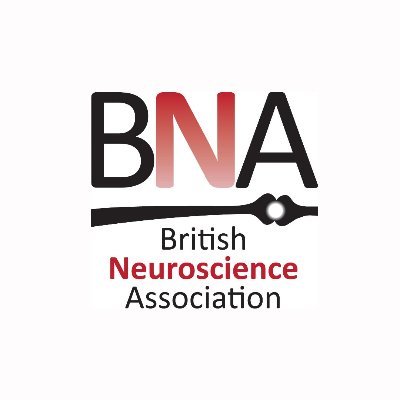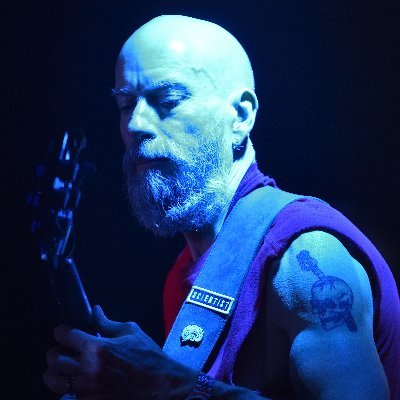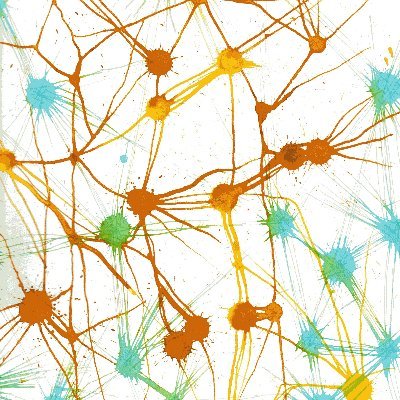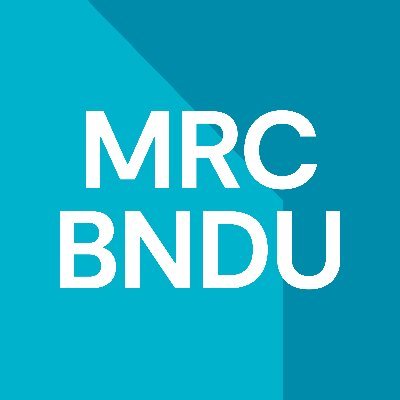
Sanjay Manohar
@BrainInTheMind
Followers
936
Following
1K
Media
20
Statuses
583
Joined February 2012
We're looking for a graduate research assistant for 2 years! Come work in my lab - cognitive neuroscience / computational neurology (🧠 https://t.co/pztK6qRoAl), in Oxford, on motivation in Parkinson's disease. Patient-facing role. Apply now: https://t.co/xFlxB3ImPP
0
4
6
Learn to code smarter, not harder! Join Dr Sanjay Manohar (Oxford) @BrainInTheMind for an online training session: 📅 27 Nov 2025 | 🕑 2–5 pm, Online Clean, reusable, efficient code in Python, MATLAB & R. https://t.co/RX3ddY7Rmz
#Neuroscience #Coding #ResearchSkills #Python
0
2
3
Probably the coolest use of sin and cos functions you have ever seen!
a=(y,d=mag(k=(y<5?6+sin(y^1)*6:4+cos(y))*cos(i+t/4),e=y/3-13)+sin(e/4-t)/3)=>point((q=y*k/5*(2+sin(d*2+y-t*4)))+90*cos(c=d/3-t/2+i%2)+200,q*sin(c)+d*29-170) t=0,draw=$=>{t||createCanvas(w=400,w);background(9).stroke(w,96);for(t+=PI/90,i=1e4;i--;)a(i/790)}//#つぶやきProcessing
3
25
127
Nature Neuroscience Large-scale cortical functional networks are organized in structured cycles https://t.co/kscZkJDKT7
nature.com
Nature Neuroscience - The human brain cycles through a repertoire of brain networks on a 1-second timescale during rest and tasks. This cycling appears to allow periodic engagement of essential...
3
22
98
In this short letter we explain why binding problems occur in the brain and why deep neural networks need to cope with them. We respond to Scholte and de Haan (TICS 2025), who previously claimed the opposite.
2
8
35
Neural evidence for modality-independent storage in working memory https://t.co/hQ1Vv6tVKR
#neuroscience
cell.com
Suplica et al. provide human EEG evidence for a modality-independent, item-based signature of working memory storage. The study provides further evidence for an abstract indexing operation underlying...
3
31
114
Hirschbichler et al. find that DBS-induced VTA inhibition does not impair reinforcement learning, but does lead to more strategic betting behaviour. They propose that the VTA may help sustain reward-driven behaviours over time. https://t.co/wwXAqrJIWQ
1
8
32
So great to see high quality behavioural modelling together with population decoding!
How do animals learn new rules? By systematically testing diff. behavioral strategies, guided by selective attn. to rule-relevant cues: https://t.co/Bxr8xalkmr Akin to in-context learning in AI, strategy selection depends on the animals' "training set" (prior experience).
0
0
2
@UKRI_News - a new MRC Centre of Research Excellence in Restorative Neural Dynamics🎉🏆🚀 National flagship aiming to transform medical device-based treatments for brain conditions. #neurotechnology
@UniofOxford @cardiffuni @GreatOrmondSt @imperialcollege @UniofNewcastle @The_MRC
1
7
9
This helps clinicians establish diagnoses more firmly, but also use more fine-grained phenotyping that acknowledges the blurred edges between these disorders. Classifier weights also available!
0
0
0
Currently, consensus clinical criteria are used to label patients. Harnessing two large cohorts of patients from across the UK (total N=1138), we found that patients with different labels also had different patterns on cognitive and psychiatric measures.
1
0
1
Diagnosing Parkinson’s disease is hard because of the many variants, with different underlying causes. We found that cognitive and psychiatric profiles may help doctors distinguish them. https://t.co/UJQO4SSf9M
1
0
1
I'm planning to write an editorial in @Brain1878 entitled "If patients only knew". It's about obstacles that slow down or prevent people from participating in clinical studies and the pace of initiating #ClinicalTrials. If you have experience or comments please message me and RT
9
22
72
Very grateful for #ERCCoG to fund my research for the next 5 years! https://t.co/jNgFQbNqZp
erc.europa.eu
The European Research Council (ERC) has awarded its 2024 Consolidator Grants to 328 researchers across Europe. These grants, totalling €678 million, aim to support outstanding scientists and scholars...
1
5
34
Hands-on training at University of Oxford using OPM in cognitive and clinical neuroscience. Deadline 23/05/2025
We are delighted to announce the first OPM-FLUX toolkit to be held 9th-12th June 2025 at St. Catherine's College at University of Oxford: https://t.co/xiFL9d4SgE
0
5
18
Mallas & De Simoni et al. show that methylphenidate modulates connectivity between the caudate nucleus and large-scale brain networks after TBI, and propose that this may be the mechanism by which the drug enhances cognitive function. https://t.co/HI19yTOR9U
1
26
93
🧠 My second PhD paper out 🧠 What causal roles does the mPFC play in social influence and temporal discounting? https://t.co/QrYJsqpMdZ
journals.plos.org
The medial prefrontal cortex (mPFC) is involved in economic and social decision-making in humans but the specific functions of its subregions are not clear. This study shows that the dorsal mPFC is...
2
5
27
Huge thanks 🫶🏼 to my supervisors @thepsychologist @ToddVogelPsych and to all exceptional collaborators @mona_garvert @lei_zhang_lz @DrJoCutler @MasudHusain @BrainInTheMind!
0
1
2
🧠 AI in neurology is here - and it’s powerful. ⚡ Stroke on MRI? 93% sensitivity/spec. 🧠 TBI outcomes? >80% accuracy. 🧪 ICH on CT? 92% sens, 94% spec. 📉 Epilepsy EEGs? Detected via AI. But challenges remain. Clinical integration needs neurologists at the helm. #AI #Neurology
2
5
12
To the stars, with healthy brain & eyes 👁🚀 Solvemed's AI Pupillometry System—validated in microgravity conditions with @IIAS_Space—is redefining SANS detection for astronauts. #SpaceHealth #SANS #Solvemed #IIAS #AIinSpace
0
1
4

















